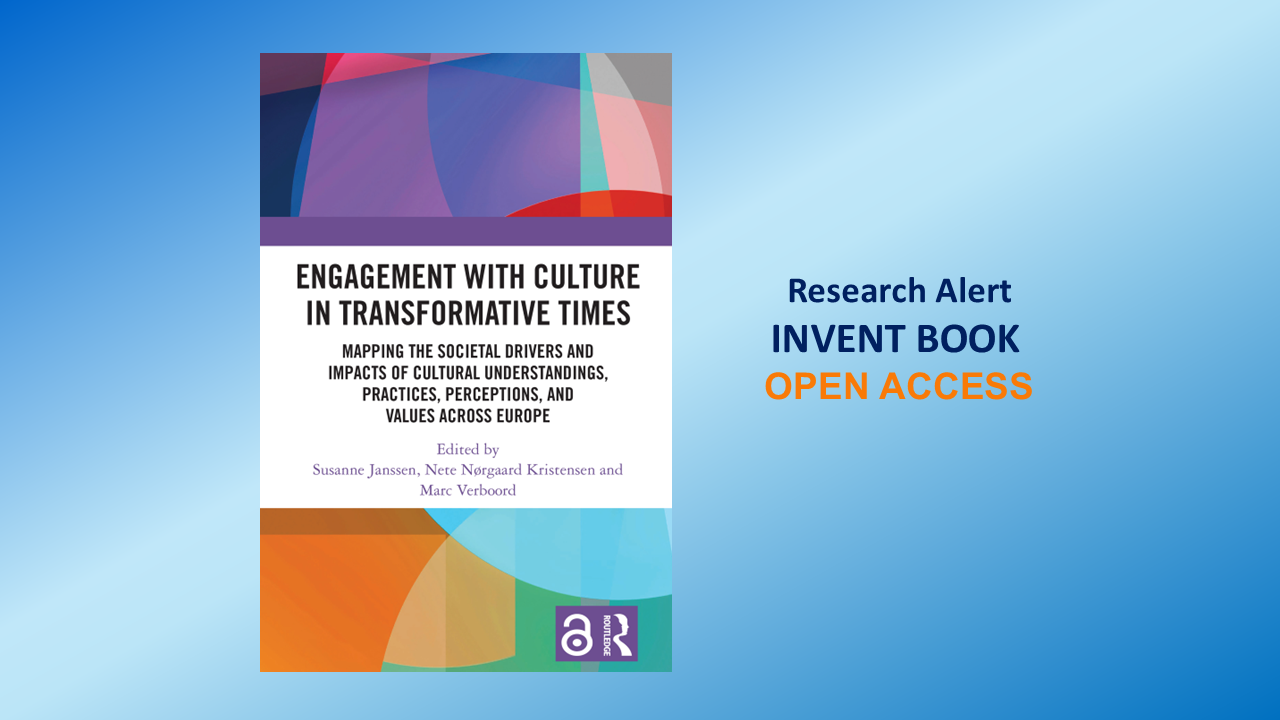We are thrilled to announce the launch of our INVENT project book with Routledge— Engagement with Culture in Transformative Times—now free to read and download in open access: https://lnkd.in/dxrfU_ma 🔗
The collection of fifteen chapters presented in this book significantly adds to current scholarly and policy debates on Europeans’ engagement with culture in its multiple forms and the societal values coupled with such cultural engagement. The bottom-up approach applied throughout the chapters has provided insight into the multiple, often contradictory concepts and understandings of culture and its societal values among various social groups within and across European societies. At the same time, this approach has provided the foundation for new methodologies for capturing the societal value of culture in contemporary societies. The systemic and simultaneous collection of diverse types of data using the same designs (e.g., interview guides or scripts) across nine European countries has provided a rich empirical foundation for the analyses. While a cross-national approach is common in surveys, it is often less feasible for qualitative interviews, focus groups, or the collection of online data.
The book offers fresh perspectives on how Europeans understand the effects of far-reaching and interconnected socio-cultural transformation, such as globalisation, migration, digitalisation, and inequality, in their countries of residence, in their daily lives, and in their cultural practices. It explores how these shifts shape personal and collective cultural views, interests, practices, and the meanings and values people attach to culture. Special attention is given to the perspectives of migrants, as well as to both in-person and digital forms of cultural participation.
Finally, the book advances not only contemporary research on people’s engagement with culture but also provides cultural policymakers and practitioners with critical insights into citizens’ cultural values, viewpoints, interests, and practices across Europe. In doing so, we hope that the book will contribute to developing more just and inclusive cultural policies and offerings and to advancing the societal values of culture for the benefit of people of all backgrounds and ages. We believe this calls for a “social turn” (Cvetičanin et al., 2023) in which cultural policy collaborates with other policy domains to address complex social issues, extending beyond traditional art to support all kinds of cultural expressions that enhance social values and shifting its focus from economic objectives to promoting civic solidarity, inclusivity, equity, tolerance, and shared community values.
Comments are closed.



 This project has received funding from the European Union’s Horizon 2020 research and innovation programme under grant agreement No
This project has received funding from the European Union’s Horizon 2020 research and innovation programme under grant agreement No